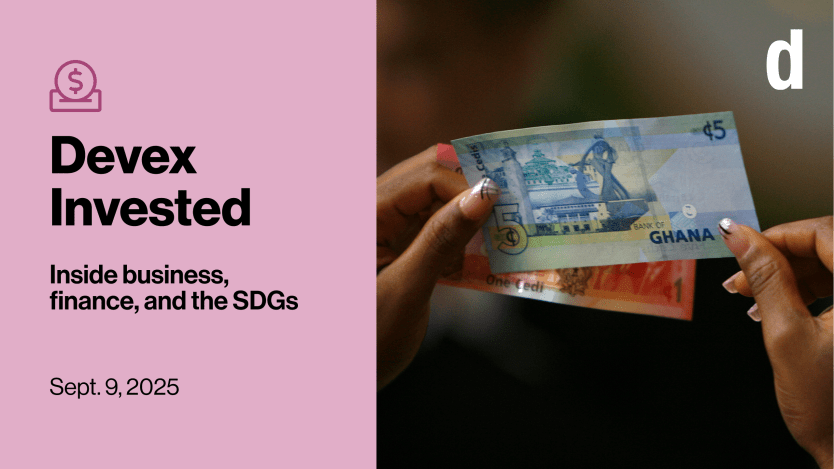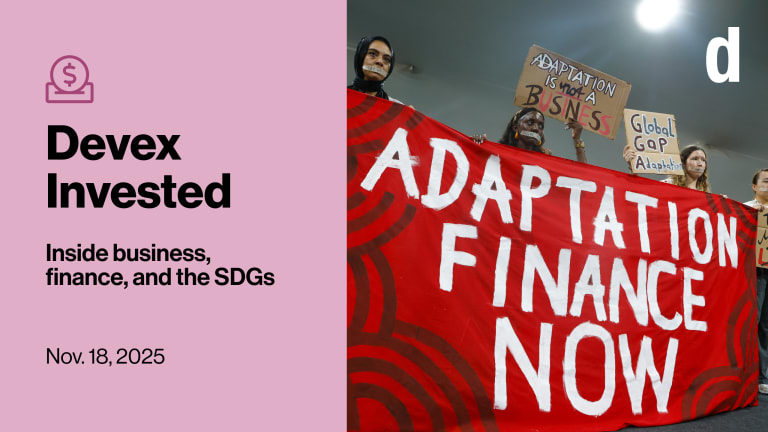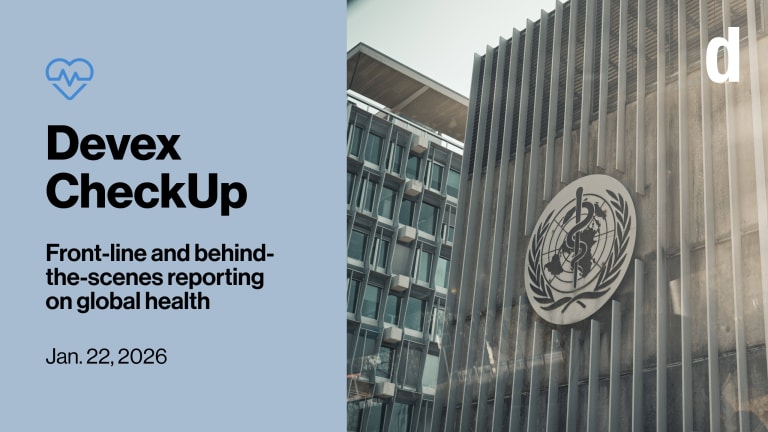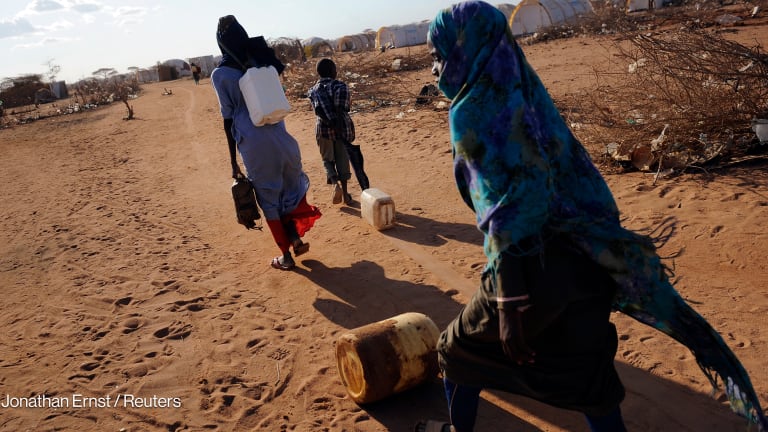Presented by Building Bridges

Taxes may not thrill, but they’re impossible to ignore. They sit at the heart of development finance, shaping how countries generate resources, fund essential services, and fuel long-term growth.
While taxes have been in the spotlight — particularly in sub-Saharan Africa where countries collect just 16% of GDP in taxes on average — progress has been slow. But that may be changing, as a mix of traditional aid cuts and debt crises drives a new urgency for other funding sources, my colleague Jesse Chase-Lubitz reports.
“This time, things are uniquely different because it is a moment of dwindling aid,” former Ethiopian Prime Minister Hailemariam Desalegn Boshe tells Jesse. “I think it’s a blessing in disguise because people will wake up and try to look into their own environment and think about how to mobilize their own resources.”
The reasons why domestic resource mobilization efforts haven’t fared so well are familiar: many of these countries have large informal economies where transactions remain outside government oversight and aren’t taxed; some countries lean on potentially volatile oil and mineral resources; and potential funds are lost through illicit financial flows. There is also often public skepticism and lack of trust as citizens see little connection between the taxes they pay and services they receive.
But today there is more regional cooperation. The G20 agreed last year to a 15% minimum corporate tax, and an effort to create a new United Nations tax convention — which held two weeks of negotiations last month — is underway after years of lobbying from low- and middle-income countries. And importantly, countries increasingly have fewer options and have to come up with more resources.
“If the aid that you are relying on is not coming and you have high indebtedness, which you pay back in foreign currency, what are you supposed to do? How do you survive? It's like you reach the point where you have no choice,” Claver Gatete, executive secretary of the United Nations Economic Commission for Africa, tells Jesse. “There was noise, but then there was no incentive. And now there’s an incentive.”
Read: Between aid cuts and debt crises, Africa bets on its own tax systems (Pro)
+ Not yet a Devex Pro member? Start your 15-day free trial today to unlock the article and explore other benefits including funding analyses and insider reporting, briefings with sector leaders and policymakers, priority access to in-person development events and summit roundtables — and you’ll help keep essential journalism open for others.
A new prescription for debt
Government accountability in spending is also a critical part of effective budget management and stretching whatever resources are available. But sometimes when governments take on belt-tightening efforts and financial or spending reforms, their citizens might not feel the benefits.
Ghana is making changes in the face of defaulting on its debt and the subsequent restructuring deal that was approved in June, Devex contributor Anthony Langat writes. While that might be getting government affairs in order and helping stabilize the currency, food costs remain high and jobs remain scarce for its citizens, Anthony reports from Accra, where hundreds gathered in its famous Black Star Square for a recent rally calling for debt cancellation.
“We don’t want the same old prescription that focuses mainly on macroeconomic indicators, that does not translate into citizens' welfare, does not translate into employment, or anything that citizens can point to as benefiting them directly at the micro level,” says Abdulkarim Mohamed, a coordinator at the Economic Governance Platform, a coalition of civil society organizations championing prudent management of public funds.
Read: Ghana’s debt deal stabilizes economy, but not living costs
Lights, camera, Accion
Development finance nonprofit Accion reached the final close on a $61.6 million fund that will invest in early-stage fintech companies targeting underserved communities. The investors include DFIs — Dutch development bank FMO and Proparco — as well as the Ford Foundation, MetLife, and Mastercard.
The new fund has also come with a name change: Accion Impact Management is rebranding its fintech work from Accion Venture Lab to Accion Ventures, which will invest in innovative tech companies that promote financial inclusion and have the potential to generate “attractive” returns.
Accion has deployed some $59.4 million in 76 fintech companies in more than 30 countries since 2012. It has fully or partially exited 13 of those investments, including Apollo Agriculture, which works with smallholder farmers in Kenya and Zambia; Lula, which is a digital small business lender in South Africa; and Pula, which provides technology-driven agriculture insurance services to smallholder farmers in Africa and Asia.
“We believe our global portfolio and local approach mean we can spot and respond to trends faster, driving local innovations on a global scale, and share learnings across geographies,” said Amee Parbhoo, managing partner at Accion Ventures, in a statement. “We aim to be one of the first institutional checks a company receives and will continue to engage early, while maintaining sufficient reserves to back our winners as they scale.”
Data dive
Your next job?
Senior Counsel – Public Sector Operations
Asian Infrastructure Investment Bank
Beijing, China
Want to better understand investments in emerging and frontier markets and what the development finance institutions in Europe have been up to?
A new data dashboard just launched by the European Development Finance Institutions group, or EDFI, might help with that. The dashboard “aims to transform how investors, policymakers, and development partners access and interpret private sector development finance data.” It has more than 60,000 lines of data on investments made by the 15 member institutions prior to 2023.
That doesn’t however include transaction-level data, risk details, or financial results, though EDFI explained that it published what is feasible “under current legal frameworks for commercial confidentiality.”
What we’re reading
Tracing the drivers of sub-Saharan Africa’s low sovereign credit ratings. [Finance for Development Lab]
The World Bank backs a $6 billion hydroelectric plant in Mozambique, the largest such project in southern Africa in 50 years. [Associated Press]
Sovereign debt row casts shadow over African MDBs. [Global Trade Review]








